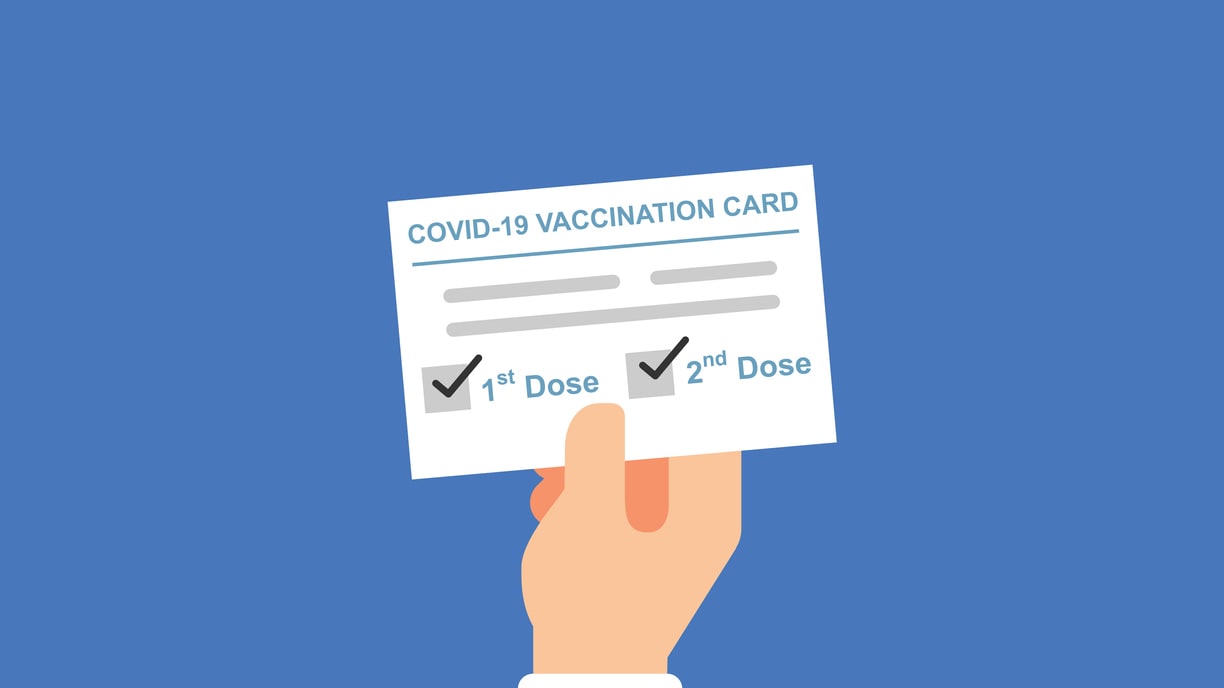Some cities and states have been enforcing stricter COVID-19 vaccination requirements in response to the spike in cases caused by the omicron variant. The resulting demand for fake vaccination cards prompted New York officials to take action through legislation and prosecution.
New York Gov. Kathy Hochul signed the Truth in Vaccination bill into law in December. The new law makes it a crime to falsify a vaccination record. Hochul said it "will help us improve our response to the pandemic now, crack down on fraudulent use of vaccination records, and help us better understand the areas of improvement we need to make to our health care system so we can be even more prepared down the road."
Prosecutors are targeting health care employees who use their access to records to forge vaccination cards and workers who falsify vaccination records to secure jobs.
We've gathered articles on the news from SHRM Online and other media outlets.
Prosecutors Say Nurses Made $1.5 Million Selling Fake Cards
A Long Island nurse and her employee have been charged with forging COVID-19 vaccination cards and entering false information into a New York database. Prosecutors said the team charged $85 to falsify records for children and $220 for adults. The lead nurse runs a pediatric practice through which she had access to vaccines and vaccination cards.
"As nurses, these two individuals should understand the importance of legitimate vaccination cards as we all work together to protect public health," said Suffolk County, N.Y., Police Commissioner Rodney Harrison in a statement.
The nurses pleaded not guilty. "In today's uncertain times, courts are issuing rulings regarding the government overstepping their limits," said Michael Alber, an attorney for one of the nurses. "Because of this, now more than ever, it is so important that there is no rush to judgment in forming an opinion."
Family Accused of Using Fake Cards for Health Care Jobs
A nurse from Poughkeepsie, N.Y., allegedly used a fake vaccination card to keep her job at a nursing home, and her two daughters were also accused of using fake cards when they applied for nursing-assistant jobs at the same facility. All three family members are facing felony charges.
"Vaccination fraud is a serious crime. It creates a threat to public health and undermines the safety of our health care professionals who are working around the clock to get us through the pandemic," said New York State Health Commissioner Dr. Mary Bassett.
Fraudulent Documents Sold on Social Media
Two New Jersey residents were accused of selling fake vaccination cards on Instagram to health care workers in New York City who are required to be vaccinated against the coronavirus. The duo allegedly charged $200 for each record and offered to add buyers to a New York vaccination database for an extra $250. Manhattan District Attorney Cyrus Vance Jr. said Facebook (which owns Instagram) and other tech giants should do more to curb fraud, because "the stakes are too high to tackle fake vaccination cards with whack-a-mole prosecutions."
(NPR)
Tips for Detecting Whether a Card Is Fake
More employers may be asking for proof of COVID-19 vaccination and booster shots as they prepare to reopen offices after another wave of coronavirus cases. To determine whether a vaccine card is fake, Kevin Troutman, an attorney with Fisher Phillips in Houston, recommended looking for:
- The absence of information called for on the Centers for Disease Control and Prevention vaccination record card, such as the manufacturer lot number, date and identification of the vaccine provider.
- Misspellings.
- Inconsistent dates.
- The name of an unfamiliar manufacturer or provider.
- Thin-cut paper rather than a card.
- A card that appears to have been cut with scissors.
- A card that has been fully printed instead of at least partially handwritten.
Discuss concerns with the employee who presented the potentially fake card and give the worker a chance to explain discrepancies, Troutman said.
Pandemic Fraud Taxes Employers
From fraudulent COVID-19 tests to collect workers' compensation to fraudulent unemployment insurance claims and fake COVID-19 vaccination cards, employers and state agencies are having to face cheating head-on.
Visit SHRM's resource hub page on the coronavirus and COVID-19.




